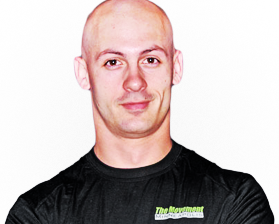
(Note: I wrote this on January 1, 2017. The events may have changed slightly, but it’s never been more relevant.)
The past few weeks have brought about a couple social protests that have been interesting enough to really get me thinking about this topic. A couple weeks ago I got involved in a little social satire that accidentally blew up into national news. Then yesterday some NoDAPL protesters scaled a beam in Minneapolis’ U.S. Bank Stadium and dropped themselves and a huge banner from the ceiling – calling for U.S. Bank to divest from Dakota Access.
Now, I don’t really care what you believe about the DAPL, because it doesn’t matter to my point. My point is that if you call yourself a freedom-loving American then you have to have tremendous respect for these non-violent social gadflies who risked their own butts to create social tension.
Just like the other social protest people flocked to social media to wring their hands over what could have happened if “something went wrong” or “someone got hurt.” Folks, the world is a dangerous and scary place. Very often the harm that is happening by maintaining the status quo is far greater than whatever freak situation might get someone hurt in a non-violent protest. It’s a cost of doing business. And if you call yourself an American who wraps themselves in the warmth of the constitution you should be damn thankful that there are people willing to take on those risks.
“Nonviolent direct action seeks to create such a crisis and foster such a tension that a community which has constantly refused to negotiate is forced to confront the issue. It seeks so to dramatize the issue that it can no longer be ignored. My citing the creation of tension as part of the work of the nonviolent resister may sound rather shocking. But I must confess that I am not afraid of the word “tension.” I have earnestly opposed violent tension, but there is a type of constructive, nonviolent tension which is necessary for growth.”
Martin Luther King, everyone’s favorite whitewashed social revolutionary wrote those words from JAIL.
Again, let me reiterate: It doesn’t matter if you think they should plow that pipeline right through the middle of a river. If you love freedom, you have to love someone who is willing to stand up for their beliefs especially when they’re going to pay consequences for it. Otherwise I’m told North Korea is lovely this time of year and you will surely be pleased that there are no dissenters amongst your midst.
Which brings me to you. I want you to have the guts to stand up for what you believe in more often – even if it’s unpopular. Maybe it means telling someone on the street to pick up their dog’s shit. Maybe it means standing up for someone you don’t know who is being harassed on the street. It’s not always going to be safe. It’s not risk free. Take some risks. Strengthen your spine with deadlifts and declarations.
If you’ve been looking for a hero I have good news and bad news: you’re the hero.



